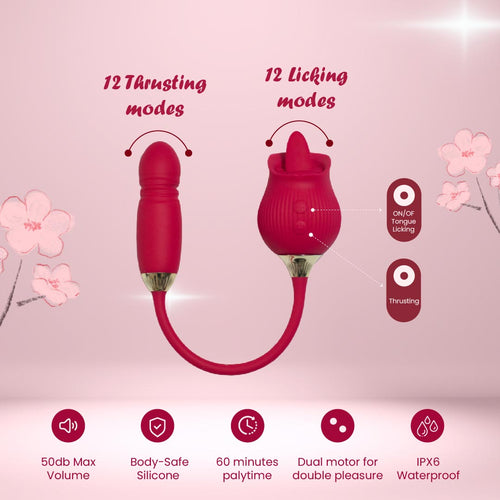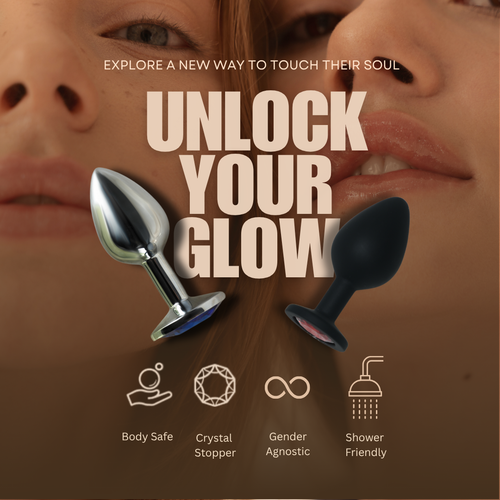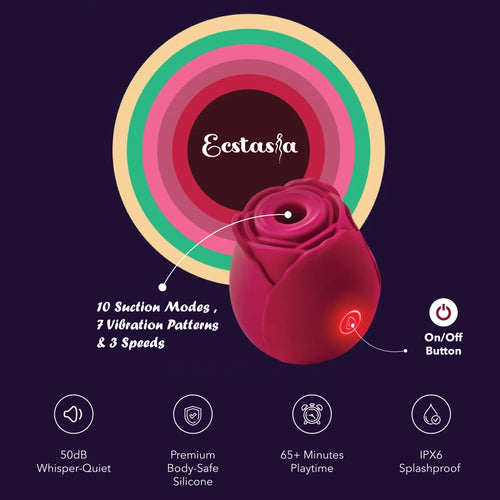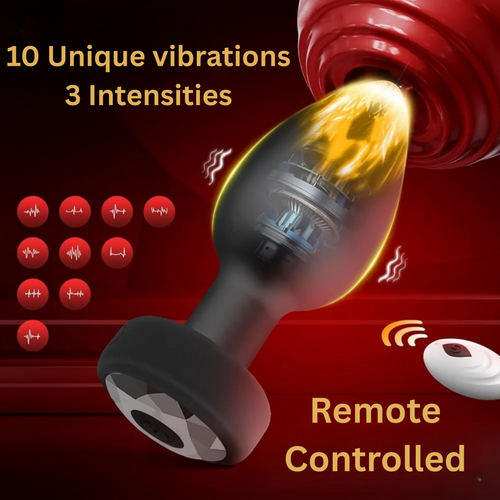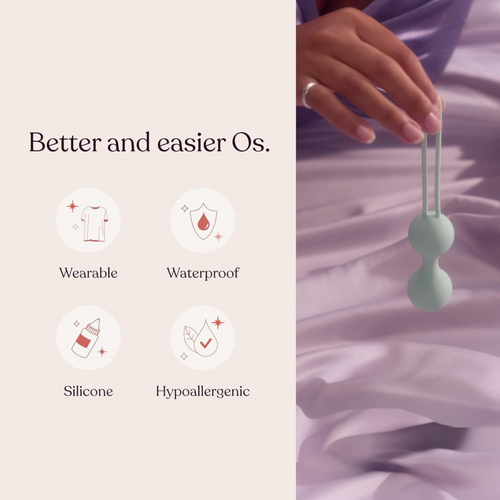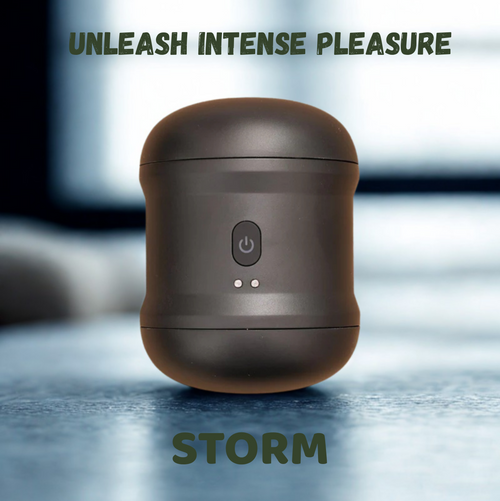
7 Ways to Bring Back Sex Drive After Pregnancy
Feeling like your sex drive took a nosedive after having a baby? You're not alone. Many new moms experience a drop in sexual desire during the postpartum period. This guide shares practical ways to reconnect with your sexuality after pregnancy, covering both the physical and emotional aspects of postpartum intimacy. We'll explore how hormonal changes affect your body, simple self-care practices that boost desire, and communication strategies to rebuild intimacy with your partner.
Understanding Postpartum Changes in Sex Drive
Hormonal Fluctuations and Their Impact
Your body just went through a hormone rollercoaster, mama. After delivery, estrogen and progesterone levels crash dramatically. Remember those pregnancy hormones that had you glowing? They're taking a serious nosedive now.
This hormone dump affects everything - especially your sex drive. That vaginal dryness you're experiencing? Blame low estrogen. And if you're breastfeeding, your prolactin levels are through the roof, which can further suppress sexual desire. Mother Nature's clever way of saying "maybe focus on the baby for now."
These hormonal changes aren't permanent though. Most women start seeing their hormones normalize around 6-12 months postpartum, though breastfeeding can extend this timeline.
Physical Recovery Timeline
Your body needs time to heal - full stop. Whether you had a vaginal delivery with tearing or a C-section, those stitches need weeks to recover. Most doctors recommend waiting 6 weeks before having sex again, but that's just the minimum.
Real talk: some women need 3-4 months before sex feels comfortable again. And that's totally normal. Pelvic floor damage, episiotomy healing, and cesarean recovery all happen on their own schedule - not your doctor's.
The Emotional Adjustment to Motherhood
Your brain literally changes after having a baby. Those primal protective instincts kick in, and suddenly your sexy thoughts are replaced with "is the baby breathing?"
Many new moms feel touched out after days of constant physical contact with their newborn. By evening, the last thing you want is more physical touch - even from your partner.
And let's talk about body image. Feeling sexy in a body that's changed so dramatically takes time. The emotional transition to motherhood affects desire in ways that surprise most women.
Sleep Deprivation Effects
Nothing kills libido faster than extreme fatigue. When you're surviving on 2-hour sleep chunks, your body prioritizes rest over sex. It's basic survival.
Sleep deprivation impacts your hormone production too, creating a vicious cycle that further reduces desire. Your brain is too tired to even process sexual thoughts when you're in deep sleep debt.
Many couples find that addressing sleep issues - like taking shifts or finding help so you can nap - does more for their sex life than any fancy lingerie ever could.
Prioritize Self-Care for Better Intimacy
Creating Me-Time Rituals
Look, getting your groove back after having a baby isn't just about scheduling date nights. It starts with you.
When was the last time you did something just for yourself? Not scrolling through Instagram while the baby naps – real, intentional me-time.
Try these quick rituals that actually work:
-
A 10-minute shower with the fancy products you've been saving
-
Reading three pages of that book collecting dust on your nightstand
-
Sipping tea while it's still hot (revolutionary, I know)
Your partner wants the confident, relaxed version of you in the bedroom – not the touched-out, exhausted zombie who hasn't had a moment alone all day.
Sleep Management Strategies
Sex drive and sleep deprivation are mortal enemies. You can't feel frisky when you're fantasizing about napping instead.
Smart moves for better sleep:
-
Trade sleep shifts with your partner on weekends
-
Skip the late-night doom scrolling (the blue light kills your melatonin)
-
Try the "fake it till you make it" bedtime - lie down at 9pm even if you're not tired
One mom told me she and her husband took turns sleeping in the guest room once a week for uninterrupted sleep. "That one good night made me feel human again – and being human meant remembering I'm also a sexual being."
Nourishing Your Body with the Right Foods
Your libido isn't just in your head – it's in your plate too.
Foods that can help revive your sex drive:
-
Dark chocolate (the real stuff, not the candy aisle garbage)
-
Avocados for healthy fats that balance hormones
-
Pumpkin seeds for zinc that boosts testosterone (yes, women need some too)
Skip the processed junk that crashes your energy. Nothing kills the mood faster than feeling bloated and sluggish.
Making these small changes isn't selfish – it's necessary. When you feel good in your body, intimacy becomes something you want again, not just another task on your never-ending to-do list.
Rebuild Physical Connection Gradually
Non-Sexual Touch and Intimacy
After having a baby, jumping straight back into sex can feel like skipping steps. Your body's been through a lot, and your mind might not be in the game yet. Start with simple touches—holding hands while watching TV or cuddling without expectations. These small moments rebuild the connection that got lost in the chaos of new parenthood.
Many new parents find that a 20-second hug releases oxytocin (the love hormone) and creates intimacy without pressure. Try showering together or giving each other five-minute massages before bed. These aren't lead-ups to sex—they're reconnection points that stand on their own.
Finding New Comfortable Positions
Your pre-baby go-tos might not work now. Pain, cesarean scars, or just feeling different in your body means experimenting with new positions. Side-lying positions take pressure off healing areas, while woman-on-top gives you control over depth and movement.
Pillows are your new best friends—use them everywhere to support your body. And remember, comfort trumps "sexy" every time. What works now might be different than before, and that's perfectly normal.
Managing Post-Birth Discomfort
Pain during sex after having a baby isn't something to push through. It's your body saying "not yet" or "not like this." Lubrication changes are super common, especially if you're breastfeeding, so keep quality lubricant nearby.
If things hurt, slow down. Try gentle external touch first. Some discomfort is normal, but persistent pain needs attention. Don't hesitate to reach out to your doctor—they've heard it all before.
Benefits of Pelvic Floor Physical Therapy
Pelvic floor therapy isn't just for fixing problems—it's about reconnecting with an important part of your body that's been through significant changes. A specialized PT can assess your specific needs and create exercises to help strengthen weak muscles or relax overly tight ones.
These therapists can identify issues you might not even realize are happening. Many women report that after just a few sessions, they not only experience less pain during intimacy but also feel more in tune with their bodies overall. It's like having a translator for what your body's trying to tell you.
Enhance Communication with Your Partner
Expressing New Needs and Boundaries
Your body's been through a lot. The baby is here, and sex might be the last thing on your mind. That's perfectly normal.
Talk to your partner about how you're feeling physically. Maybe you're sore, exhausted, or just touched out after holding a baby all day. Your partner can't read your mind, so be specific about what feels good and what doesn't.
Simple phrases like "I'd love a back massage instead" or "I need some solo time first" help set clear boundaries without making your partner feel rejected.
Setting Realistic Expectations Together
Remember those spontaneous bedroom sessions? They're on pause for a while. And that's okay.
Have an honest chat about what sex might look like now. Quick encounters during nap time? Morning cuddles that sometimes lead to more? Understanding that arousal might take longer?
Many couples find relief just acknowledging that their sex life will be different, not gone forever. Lower expectations often lead to better experiences because you're not comparing to pre-baby days.
Planning Intimate Time in Advance
Spontaneity sounds romantic, but with a new baby, planning is your friend.
Try scheduling intimate time—and this doesn't always mean intercourse. Maybe it's a 20-minute makeout session while the baby naps or a shower together in the morning.
Put it on the calendar if you need to. Some parents text flirty messages throughout the day as a buildup. Others tag-team baby duties to ensure one partner gets a nap before evening together.
Planning sex might sound unsexy, but anticipation can actually boost desire. Plus, knowing you have dedicated time to connect can ease anxiety about "when will we ever have sex again?"
Rediscover Your Body and Sensuality
A. Body Confidence After Pregnancy
Your body just did something incredible. You created and birthed a whole human being. But now? You might be looking in the mirror wondering who that person is staring back at you.
Here's the truth: postpartum bodies are beautiful in their strength, not despite their changes. Those stretch marks? Battle scars of creation. That softer belly? The place where your little one grew.
Many new moms feel disconnected from their bodies after pregnancy. You're not alone if you feel this way. The key is gentle reconnection:
-
Start with small appreciations: "My arms are strong enough to hold my baby for hours"
-
Touch your body with kindness, not criticism
-
Use positive affirmations when you look in the mirror
Your partner fell in love with YOU, not just your pre-baby body. Remember that.
B. Mindfulness Techniques for Reconnection
Being present in your body is essential for rekindling desire. When your mind is full of baby needs, household tasks, and work stress, there's no room for sexy thoughts.
Try these quick mindfulness practices:
-
Take 3-minute body scans throughout the day
-
Focus on sensations during everyday activities (the warmth of shower water, the texture of clothing)
-
Practice 10 deep breaths before bed, placing hands on areas that need attention
Mindfulness helps you notice what feels good again. And that's the foundation of desire.
C. Sensual Activities Beyond Intercourse
Penetrative sex isn't the only way to be intimate. When you're healing or just not ready, explore these alternatives:
-
Massage exchanges (with no expectation of "more")
-
Sensual touching sessions where certain areas are off-limits
-
Shower or bath together
-
Making out like teenagers (remember those days?)
These activities rebuild the bridge to desire without pressure to "perform." They remind your body how to feel pleasure again.
D. Wardrobe Refreshes That Boost Confidence
Your pre-pregnancy clothes might not fit right now (or ever again), and that's perfectly okay. But wearing stretched-out maternity clothes or only practical nursing bras isn't doing your confidence any favors.
You deserve clothes that fit your current body and make you feel good:
-
Invest in properly fitted undergarments (yes, get measured!)
-
Choose soft, touchable fabrics that feel good against your skin
-
Add one non-practical, just-for-feeling-sexy item to your wardrobe
-
Wear clothes in colors that energize you
Feeling attractive isn't shallow—it's reconnecting with an important part of yourself that might have gotten lost in motherhood.
Create a Sex-Positive Environment
Finding Privacy with a New Baby
Finding alone time feels impossible with a newborn, right? Your bedroom has transformed into a nursery extension, with baby monitors, diapers, and burp cloths everywhere. Not exactly screaming "sexy time."
Try these practical solutions:
-
Create a baby-free zone in your bedroom – no diaper stations or baby gear allowed
-
Use a bassinet with wheels that can be rolled out for intimate moments
-
Hang a simple door sign that signals "parents need privacy" to older children
-
Invest in room-darkening curtains for daytime intimacy during baby's naps
Remember, your bedroom needs to feel like an adult space again, not just another baby care station.
Managing Interruptions Effectively
Baby's crying right when things are heating up? Totally normal and completely frustrating.
Instead of giving up, try:
-
Planning intimacy during baby's most reliable sleep windows
-
Taking turns handling interruptions so one parent doesn't always feel "on call"
-
Using white noise machines near baby's sleep area to muffle adult sounds
-
Having quick-response plans for getting back in the mood after checking on baby
The reality? Interruptions will happen. The difference is whether you let them completely derail you or simply press pause.
Building Anticipation Throughout the Day
Who says sex starts in the bedroom? In fact, for new parents, building desire throughout the day is crucial when you're exhausted by evening.
Try building anticipation with:
-
Flirtatious text messages while baby naps
-
Quick shoulder massages while passing in the kitchen
-
Meaningful compliments about each other as parents AND partners
-
Reminiscing about pre-baby intimate moments
-
Setting a "connection timer" for 5-minute physical touch breaks
These micro-moments of connection create readiness for intimacy that sudden "wanna do it?" requests simply can't match.
Using Technology to Enhance Connection
Technology isn't just for baby monitors! Use it to your advantage:
-
Schedule "us time" alerts that remind both partners to connect
-
Try couple-focused apps with intimacy prompts and ideas
-
Use video chats during work breaks for adult conversations
-
Create shared private photo albums of pre-baby romantic memories
-
Set up smart home features for quick mood lighting or music
The trick is making technology work for your relationship, not just for baby tracking.
The Power of Spontaneity in New Parenthood
Spontaneous sex might seem impossible with a newborn, but redefining "spontaneous" is key.
The new spontaneity looks like:
-
Embracing the 10-minute window when baby unexpectedly naps
-
Keeping intimacy essentials in easy-reach locations throughout the house
-
Lowering expectations – sometimes a quick connection beats elaborate plans
-
Creating "opportunity windows" when grandparents visit or take baby for a walk
-
Celebrating small victories with physical affection
The parents who maintain intimacy aren't necessarily those with the most time – they're the ones who grab opportunities when they appear.
Conclusion
Rediscovering intimacy after pregnancy is a journey that requires patience, self-compassion, and open communication. By understanding the physical and hormonal changes your body has experienced, prioritizing self-care, and gradually rebuilding physical connection with your partner, you can successfully navigate this transition period. Enhancing communication about your needs and concerns while creating a sex-positive environment will help both partners feel valued and understood.
Remember that every woman's postpartum experience is unique, and there's no timeline for when your sex drive "should" return. Be gentle with yourself as you rediscover your body and sensuality after the remarkable journey of pregnancy and childbirth. With mutual understanding, creativity, and persistence, you and your partner can develop a fulfilling intimate relationship that accommodates your new reality as parents while honoring your needs as individuals and as a couple.

